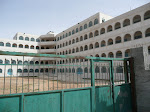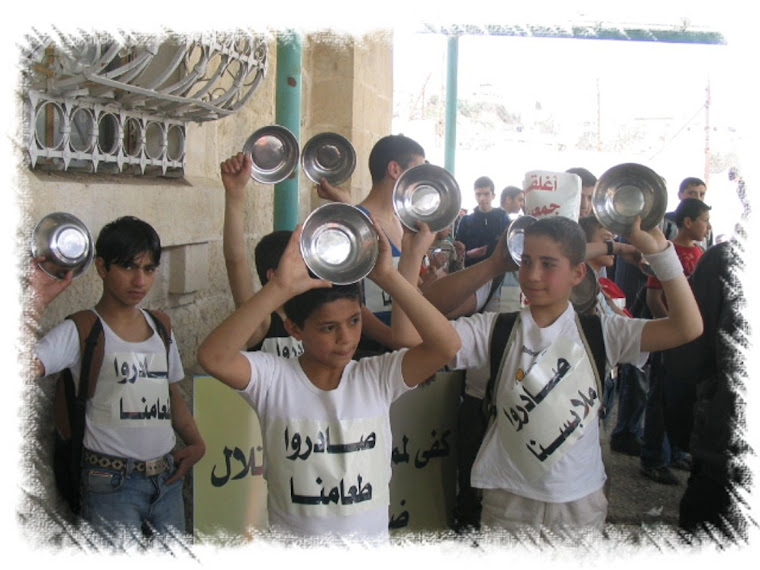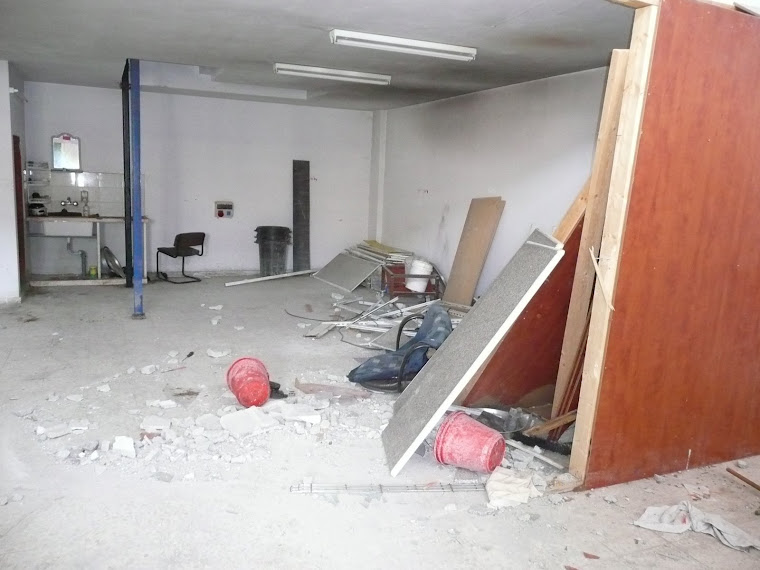Shopkeeper vows to stay put after Israel moves to evict tenants of mall it says is linked to Hamas
Mar 24, 2008 04:30 AM
OAKLAND ROSS
MIDDLE EAST BUREAU
HEBRON, West Bank–Leana Karaki says she won't go.
Owner of the Pretty Woman dress shop – a stylish, two-storey clothing emporium on King Faisal St. in the West Bank city of Hebron – Karaki has been ordered by the Israeli armed forces to empty her store and vacate the premises by April 1 or risk five years' imprisonment.
Her crime? The Palestinian businesswoman happens to rent her retail space from the Islamic Charitable Society of Hebron, a children's aid agency Israel accuses of acting as a front for the militant Islamist organization Hamas, a charge the charity's officials vehemently deny.
But their denials have fallen on deaf Israeli ears, and so a lot of innocent people are about to be punished for circumstances beyond their control.
"I didn't do anything," Karaki says. "I have nothing to do with it. Where do I go?"
There is no easy answer to her question. But go, she must – along with the other law-abiding tenants of Hebron's Al-Huda shopping and office complex, including a dentist, a chiropractor, a cardiologist, a coffee shop, a textile store, and a 19,000-volume children's library – and that is only the beginning.
In late February and again early this month, Israeli soldiers descended upon this Palestinian city, welding shut the gates of a private school now under construction, closing two bakeries and handing eviction notices to an array of offices and retail outlets – all the property of a 46-year-old charitable organization that runs schools, clinics, and orphanages for more than 5,000 needy or imperilled youngsters in and around Hebron.
The Israelis gave Karaki and the other tenants at the Al-Huda Mall a little more than 30 days to clear out.
Then, on March 5 just before midnight, the IDF raided a warehouse in the Al-Harayek area of southern Hebron, a facility the charity uses to store food and other goods needed for the children in its care.
During the following nine hours, according to Abd Al-Kareem Farah, legal representative of the Islamic charity, the Israeli soldiers gutted the warehouse, removing banks of industrial refrigerators and freezers, along with clothing, books, shoes, and cleaning supplies.
He values the seized property at more than $200,000.
Last Friday, the warehouse remained empty.
"I wonder if those soldiers didn't feel ashamed of themselves, taking the food of those children," says Farah, an amiable young lawyer who has represented the charity's legal interests for the past 10 years. "This organization has earned the respect and support of the city."
Maybe so, but Karaki is facing financial hardship all the same – and she is far from alone.
Karaki has just eight days to move her livelihood, her inventory, and her 15 employees somewhere else.
The high-spirited businesswoman is beside herself.
A year ago, she invested a small fortune to renovate her store.
The improvements included the installation of green marble floors, limestone wall tiles, and two spiral staircases, plus the construction of an overhead bridge to connect the business physically with the next-door Mama Care children's clothing shop, which she also owns.
Now Karaki is being ordered to forfeit all this because the Israeli military doesn't like her landlord.
"You think this is a reason to close a place?" she asks. "I'm not going. I don't know where to go. Maybe the sea."
Upstairs, Dr. Waddah Ashhab, a cardiologist, finds himself in the same dilemma.
"I don't know what to do, to be honest," says the British-trained heart specialist, who has operated an outpatient clinic in this mall for the past eight years. He treats between 10 and 15 patients a day.
Founded in 1962, when Hebron and the rest of the West Bank were under Jordanian rule, the Islamic Charitable Society has grown steadily ever since.
The agency, whose existence predates Hamas by 26 years, offers full-time shelter to 300 orphans, while providing schooling, meals, medical care, and other assistance to several thousand other distressed children.
This is not the way the IDF views the organization's activities.
"All of the foundation's resources are devoted to funding Hamas and Hamas' grip on the region ... and to strengthening the terrorist network in order to target Israel," according to the Israel Defense Forces press office. "The Islamic Charity (Society) has, among other things, delivered money to Hamas terrorist operatives and their families, trained youths based on jihad principles, supported the families of suicide bombers and incarcerated terrorists, and spread Hamas principles amongst the Palestinian population."
But Farah denies any formal connection between the charity and Hamas, although he freely admits some of its 550 employees may well support, or even belong to the militant organization that holds power in the Gaza Strip and that won the votes of more than half the Palestinian adult population in elections two years ago.
About 25 per cent of the charity's funding is raised from local sources, he says. The rest comes from private philanthropic organizations in North America, Europe, or the Middle East, all of which he says are legally registered in their countries.
In 2005, the organization completed construction of a boys' dormitory in western Hebron that cost $1.5 million. Meanwhile, a $1 million school with space for 1,200 students is nearing completion in southern Hebron.
These two projects alone represent $2.5 million in recent discretionary investment that could in theory have been diverted to Hamas, but wasn't.
"The people who are running this institution are honest volunteers," says Farah.
Unfortunately, they not infrequently wind up in Israeli prisons, after being convicted in Israeli military courts of being tied to an organization Israel deems a supporter of terrorism.
"There are 25 people in jail, as we speak," says Farah.
They at least were formally associated with the charity, even if they may have been innocent of any other wrongdoing.
Leana Karaki, however, is guilty only of paying her rent on time.
"I am not Fatah and I am not Hamas," she says. "I am just a woman who wants success and a good reputation."
Hunkering down in Hebron
Tuesday, April 15, 2008
Subscribe to:
Post Comments (Atom)




















































.jpg)








































.jpg)

.jpg)


No comments:
Post a Comment